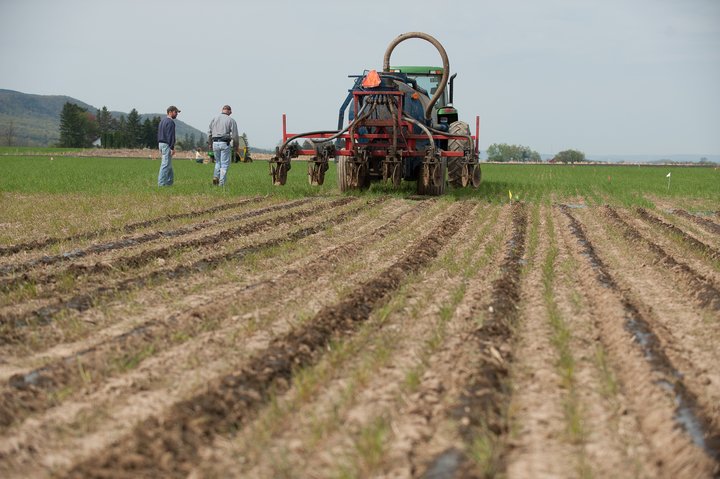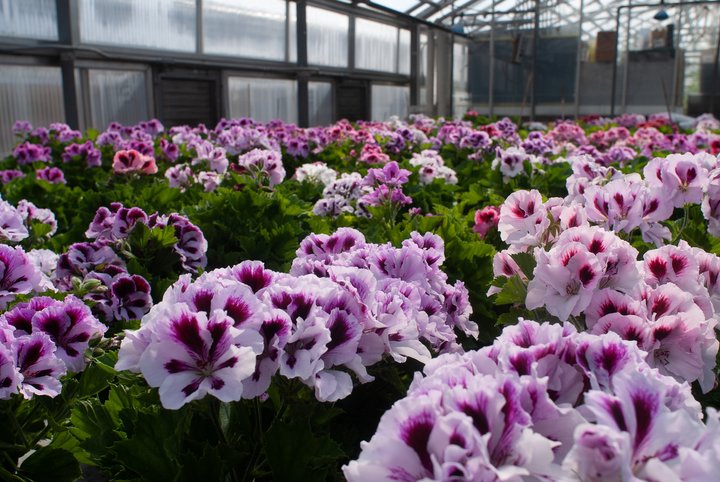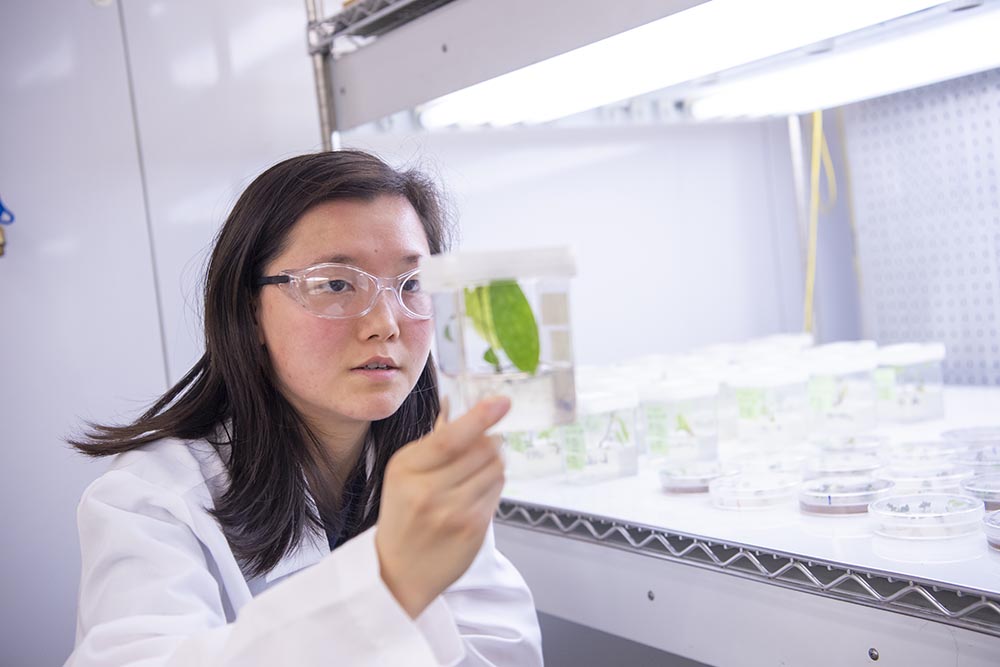Plant Sciences Major
Roll up your sleeves and grow with us.
Embark on an in-depth exploration of plant life. Make the world a better place through a hands-on understanding of plants for food, fiber, medicine, and fuel. Science, academic, government, industry, and entrepreneurial careers await.
A small green world for the big blue planet.
Penn State Plant Sciences has world-renowned faculty, on-campus greenhouses, a plethora of laboratories, and thousands of acres of research and teaching farms where you can pursue your passion. But what’s special is not how big it is but how small. Faculty and staff put student needs first. And the facilities are truly unique in their proximity and accessibility.
Feeding more people on less land. Sustainability. Food deserts. Our small world is making a huge impact. Penn State Plant Sciences research and outreach are making a real difference, all over the world. Join us today as we tackle tomorrow’s biggest challenges.
Plant Sciences is the right major for if you’re:
- seeking hands-on learning in greenhouse spaces, labs, research and teaching farms, a student farm, and hydroponics and aquaponics systems
- interested in sustainable food, fuel, flower, and fiber systems with consideration for climate impacts
- curious about growing and developing plants for better human nutrition, greater insect and disease resistance, and medical or aesthetic qualities
See the University Bulletin for details on program requirements, suggested academic plan, and more.
Ag Journeys
“Classroom lessons spring to life on the student farm.”
– Logan Hickey
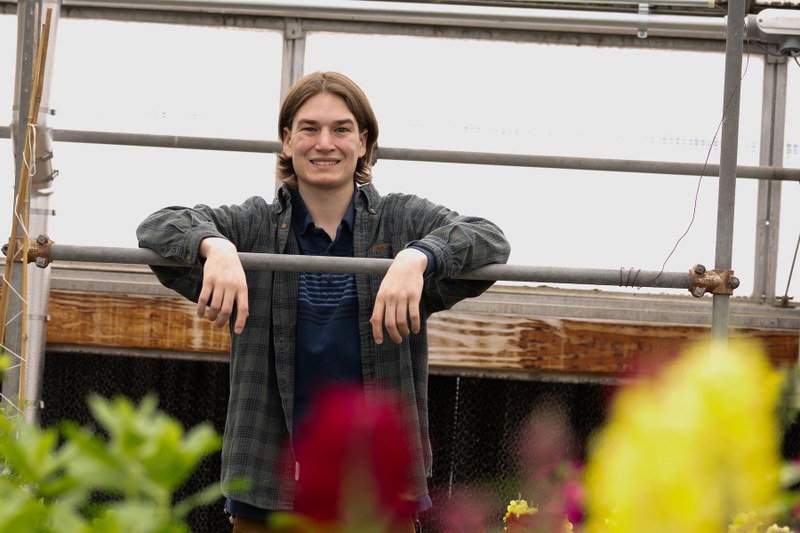
The classroom outside the classroom.
Clubs, internships, externships, and international exchanges aren’t just add-ons at Penn State. They are at the very heart of your Plant Science education and the gateway to endless social and professional opportunities. No matter how broad or focused your interests, there is a group and/or an experience with your name written all over it.
Craft your experience.
Related clubs
- Agronomy Club
- Blooms and Shrooms
- Horticulture Club
- Student Farm Club
- Turfgrass Club
- Weed Science Team
- See all clubs and teams
Recent internships
- Corn research
- Crop producer
- Nursery intern
- Plant biologist
- Plant pathologist
Popular study abroad
- Economic, Community, and Agricultural Development, Kenya
- Food Security Issues for Smallholder Agriculture in Asia, Thailand/Cambodia
- New World Crops and Sustainable Food Production, Spain
- Walking in the Footsteps of the Potato Famine, Ireland
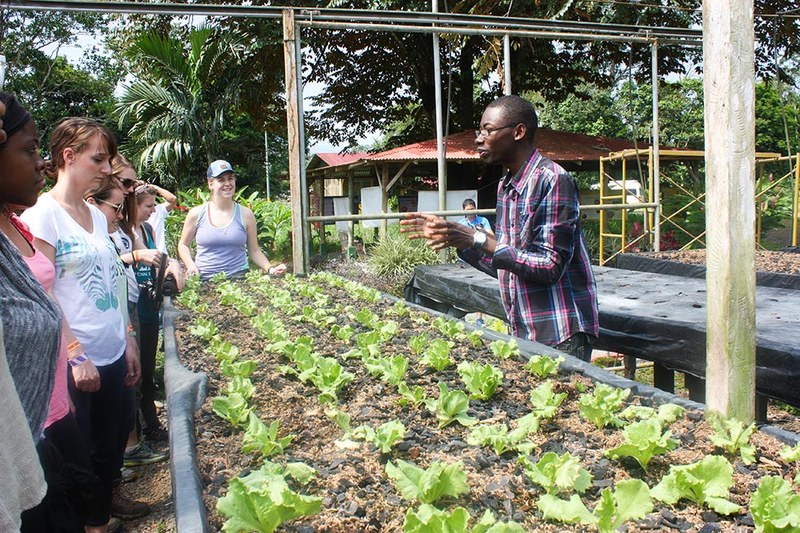
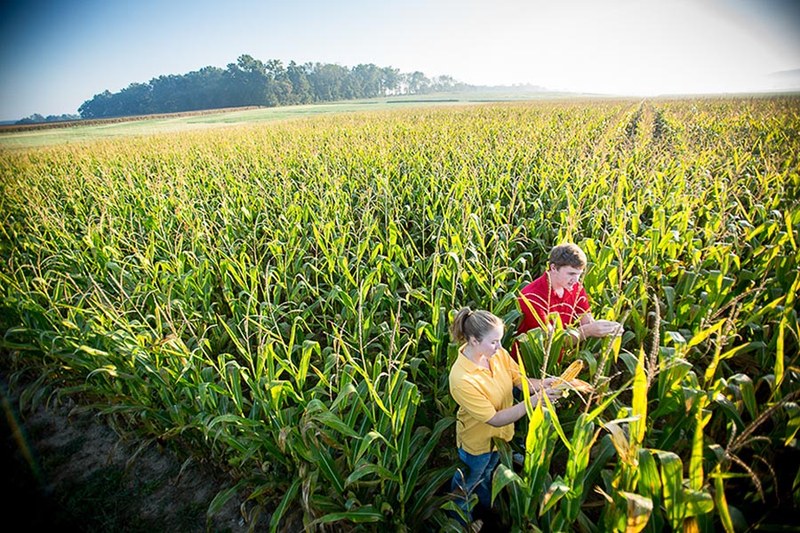
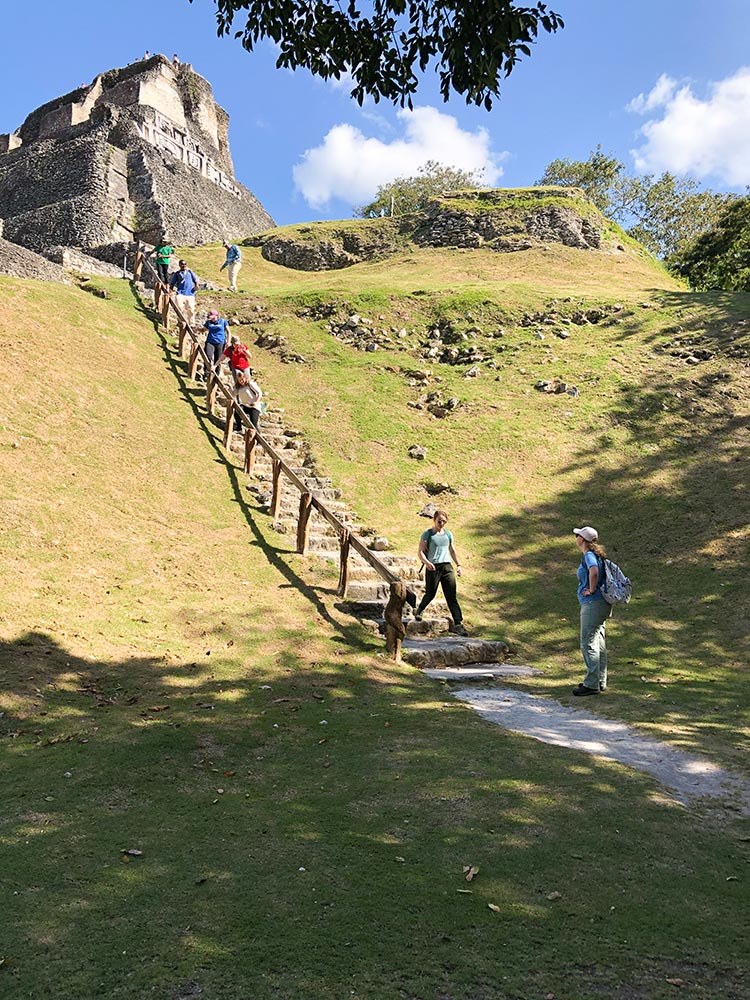
A practical, workforce-ready degree—and a college experience you’ll love.
Penn State Plant Sciences grads are all over the world doing the most amazing things, from agriculture to medicine and law and everything in between. You can harness the awesome power of a truly unique education at one of the world’s most prestigious universities.
Our alumni out in the world
- Agricultural chemical companies
- Biological sciences
- Cooperative extension and education
- Crop consulting firms
- Federal and state plan health and inspection services
- Fruit and vegetable farms
- Greenhouses
- Medicinal plant industry
- Public and private gardens and arboretums
- Landscape companies
- Seed companies
- Universities
Example Career Pathways
Here is a glimpse into the variety of careers and other pathways you might pursue with a degree in Plant Sciences. Our students have access to powerful career resources to help prepare for an amazing career!
Agricultural Researcher
Discover new ways to improve the yield and quality of agronomic and horticultural crops and to develop methods for handling, storing, and marketing them. Specialized paths include plant breeding, plant nutrition, plant growth regulation, plant physiology, or biotechnology.
Agronomist Entrepreneur
Run your own plant production business or be a production manager for an orchard, greenhouse, flower shop, nursery, garden center, vegetable operation, or a sustainable agricultural operation.
Extension Educator
Work with agricultural producers on problem-solving strategies based on university research. County extension agents and extension specialists create and run workshops, produce publications, and offer consultations to educate producers and the public. You may also become certified to teach agriculture and plant science in high schools, technical schools, and universities.
Greenery Managers
Public gardens and arboretums offer a wide range of career opportunities in management and production in greenhouses and conservatories, landscaping, education, conservation, ecology, and integrated pest management.
Health Advocate
Protect our nation’s food supply, public health, environment, and economy. Federal and state regulatory agencies hire plant scientists to develop control strategies that are effective, affordable, and sustainable to reduce crop losses caused by plant diseases, pests, and invasive species.
Marketing and Sales Professional
Combine your people, business, and science skills for a rewarding career in the wholesale or retail sale of fresh or processed fruits and vegetables, cut flowers, house plants, floral arrangements, nursery stock, seed, fertilizers, pesticides, and production equipment. Choose a path as a buyer of these products for a chain store, a government or private organization, or wholesale distributor.
Plant Sciences Students in the News
May 22, 2023
Penn State international agriculture students explore careers at the capital
A group of Penn State undergraduate students recently traveled to the nation’s capital to meet with governmental and nonprofit leaders in the international agricultural sector. The visit was an opportunity to learn about current issues from those actively working in the industry.
Read More
April 28, 2023
2023 Undergraduate Exhibition welcomed 237 participants
A total of 237 Penn State undergraduates presented during the Undergraduate Exhibition from April 10-12, showcasing their research, projects and performances during a virtual and in-person event.
Read More
January 11, 2023
Student Farm offers engagement opportunities across campus
As a new growing season approaches, the Dr. Keiko Miwa Ross Student Farm prepares for another year of supporting the campus food system.
Read More
May 13, 2021
Junior grows seeds of opportunity as student in College of Ag Sciences
Kyle Hartmann, a plant sciences major in the College of Agricultural Sciences, found new opportunities at Penn State which started after he joined the Accomplish Program. The peer mentor program helps students moving from other campuses or universities to find resources to successfully acclimate to University Park, the college and the community.
Read More

